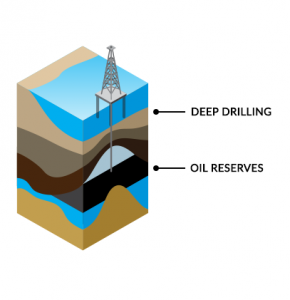All Categories
Featured
Table of Contents
Geophysical Surveys Definition & Meaning In Stock ... in South Lake Australia 2023

The primary model for the radial structure of the interior of the Earth is the initial referral Earth design (PREM). Some parts of this model have actually been updated by recent findings in mineral physics (see post-perovskite) and supplemented by seismic tomography. The mantle is generally made up of silicates, and the limits between layers of the mantle are constant with stage shifts.

This makes plate tectonics possible. Schematic of Earth's magnetosphere. The solar wind circulations from left to right. If a planet's magnetic field is strong enough, its interaction with the solar wind forms a magnetosphere. Early area probes drawn up the gross measurements of the Earth's magnetic field, which extends about 10 Earth radii towards the Sun.
Inside the magnetosphere, there are relatively dense regions of solar wind particles called the Van Allen radiation belts. Geophysical measurements are generally at a specific time and place. Accurate measurements of position, along with earth contortion and gravity, are the province of geodesy. While geodesy and geophysics are different fields, the two are so closely connected that numerous clinical organizations such as the American Geophysical Union, the Canadian Geophysical Union and the International Union of Geodesy and Geophysics incorporate both.
What Are Geological, Geochemical, in Oldsbury Western Australia 2020
A three-dimensional position is computed utilizing messages from 4 or more visible satellites and described the 1980 Geodetic Recommendation System. An option, optical astronomy, combines huge coordinates and the regional gravity vector to get geodetic collaborates. This technique just provides the position in two coordinates and is harder to use than GPS.
Relative positions of 2 or more points can be figured out utilizing very-long-baseline interferometry. Gravity measurements entered into geodesy due to the fact that they were needed to related measurements at the surface area of the Earth to the reference coordinate system. Gravity measurements on land can be made utilizing gravimeters deployed either on the surface or in helicopter flyovers.
, which are studied through geophysics and space physics.
Geophysical Methods in Inglewood Australia 2021

Considering that geophysics is worried with the shape of the Earth, and by extension the mapping of functions around and in the world, geophysical measurements include high precision GPS measurements. These measurements are processed to increase their accuracy through differential GPS processing. When the geophysical measurements have actually been processed and inverted, the analyzed results are plotted utilizing GIS.
Lots of geophysics companies have created in-house geophysics programs that pre-date Arc, GIS and Geo, Soft in order to meet the visualization requirements of a geophysical dataset. Exploration geophysics is used geophysics that typically uses remote sensing platforms such as; satellites, airplane, ships, boats, rovers, drones, borehole noticing equipment, and seismic receivers.
For example, aeromagnetic data (aircraft gathered magnetic data) gathered utilizing traditional fixed-wing airplane platforms must be remedied for electromagnetic eddy currents that are developed as the aircraft moves through Earth's electromagnetic field. There are also corrections related to changes in measured possible field intensity as the Earth rotates, as the Earth orbits the Sun, and as the moon orbits the Earth.
Geophysical Survey Services in Alexander Heights Oz 2021
Signal processing involves the correction of time-series data for unwanted sound or errors introduced by the measurement platform, such as airplane vibrations in gravity information. It also includes the decrease of sources of noise, such as diurnal corrections in magnetic information. In seismic information, electro-magnetic data, and gravity data, processing continues after error corrections to include computational geophysics which result in the last interpretation of the geophysical information into a geological interpretation of the geophysical measurements Geophysics emerged as a different discipline just in the 19th century, from the crossway of physical location, geology, astronomy, meteorology, and physics.
The magnetic compass existed in China back as far as the fourth century BC. It was not up until excellent steel needles could be forged that compasses were used for navigation at sea; prior to that, they could not maintain their magnetism long enough to be beneficial.
By looking at which of eight toads had the ball, one could identify the direction of the earthquake.'s (1600 ), a report of a series of precise experiments in magnetism.
Why Study Geophysics? in Padbury WA 2020
Geochemistry, Geophysics, Geosystems. National Aeronautics and Area Administration. Recovered 13 November 2018.
Leipzig. Berlin (Gebruder Borntraeger). Runcorn, S.K, (editor-in-chief), 1967, International dictionary of geophysics:. Pergamon, Oxford, 2 volumes, 1,728 pp., 730 fig Geophysics, 1970, Encyclopaedia Britannica, Vol. 10, p. 202-202 Ross 1995, pp. 236242 Shearer, Peter M. (2009 ). Introduction to seismology (2nd ed.). Cambridge: Cambridge University Press. ISBN 9780521708425. Stphane, Sainson (2017 ).
Table of Contents
Latest Posts
How To Become A Geophysicist in Tuart Hill Western Australia 2020
What Do Geoscientists And Hydrologists Do? in Oakford WA 2023
Recent Advances In Optimized Geophysical Survey Design in Mindarie Australia 2021
More
Latest Posts
How To Become A Geophysicist in Tuart Hill Western Australia 2020
What Do Geoscientists And Hydrologists Do? in Oakford WA 2023
Recent Advances In Optimized Geophysical Survey Design in Mindarie Australia 2021